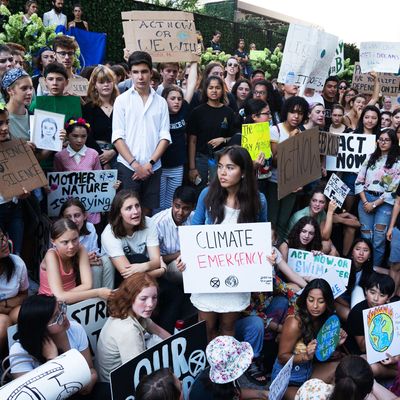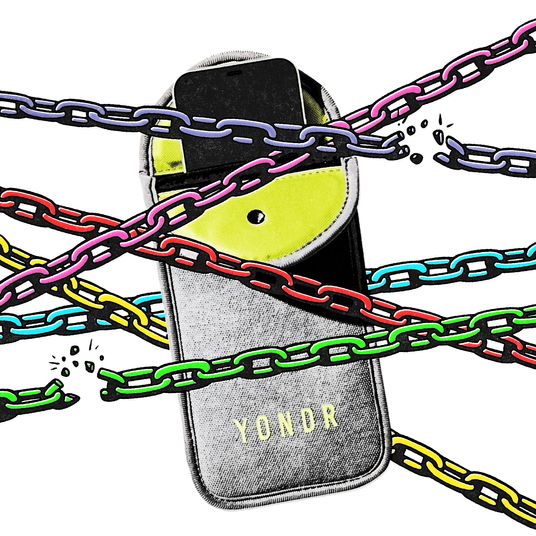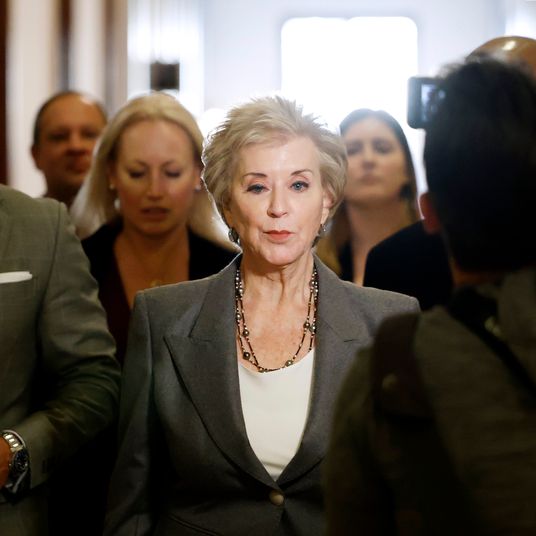
The planet is dying, and novelist Jonathan Franzen thinks it’s time to move on. “You can keep on hoping that catastrophe is preventable, and feel ever more frustrated or enraged by the world’s inaction,” he writes in a recent issue of The New Yorker. “Or you can accept that disaster is coming, and begin to rethink what it means to have hope.” But hope, as Franzen defines it, is a small and fragile thing. He endangers it further with his own pessimism. We cannot stop climate change, he writes, and activists who say otherwise perform a disservice. He compares them to “religious leaders,” who promise hellfire to goad the masses into line. “If you persist in believing that catastrophe can be averted, you commit yourself to tackling a problem so immense that it needs to be everyone’s overriding priority forever,” he warns. “False hope,” as he puts it, can be dangerous. To survive, we must be realists.
There is no devil and no hellfire except what we create. Activists know this, and here they have the edge on prophets. Just last week, researchers concluded that China’s Belt and Road Initiative, an infrastructure project that connects developing nations to the superpower like spokes to a carbon-devouring hub, may raise global temperatures. Participating countries could account for 66 percent of the world’s emissions by 2050, Reuters reported, unless China decarbonizes its economy. The U.S., meanwhile, lacks the political will to address its own significant contributes to climate Armageddon. So Franzen is probably correct about one matter: We will not stop climate change. The window for preventing it passed us long ago. But his broader points — that optimism lulls us into “complacency,” that we should aim for smaller, more achievable goals — fall short of what the times require.
Franzen is not the first person to tell the left that its dreams are too lofty for the world. It’s a familiar enough argument, applied not just to the Green New Deal but to any left-wing bid to avert disaster in the making. Extreme wealth inequality, for example, lacks the specific timetable of ecological collapse, but it is a global problem that brings us closer to social breakdown as it worsens. There are solutions — radical ones, which would require governments to drastically reconsider their financial priorities — but the sensible classes in the U.S. and abroad dismiss them as frivolities. But rejection of the radical cures hasn’t led to bipartisan adoption of incremental policy. The notion of raising taxes on the rich to fund public services does not, in isolation, lay out the road to revolution, but that hasn’t prevented its critics from calling it an unworkable plan that would block the wealthy from creating jobs. The U.S. government hasn’t raised the federal minimum wage since 2009, but it’s taken years of organizing work for mainstream Democrats to concede that it may perhaps be time to raise it to $15 an hour. In Europe, centrists and conservatives alike sold austerity as pragmatism, and railed against welfare spending, despite clear evidence that cuts to public funding exacerbated poverty and widened inequality.
Without hope, there’s no reason to fight, and without imagination, there’s no future to plan. Our solutions have to scale to the problems they’re designed to address. With climate change threatening the stability of our civilization, optimism is a meaningful survival strategy — the antidote to nihilism, which is a paralyzing state.
Climate disaster is not a one-off, binary proposition. It occurs on a gradient, and so too will its consequences. Our actions will help determine the severity of our dystopia. We can blunt the effects of climate change, but the work will be difficult, and will be made more difficult by people like Franzen, who look toward the future and shrug. One cannot build a political movement on helplessness. Even the incremental solutions he sets forth in his essay require a degree of imagination that he does not appreciate; the post-collapse world he envisions can’t exist without some measure of optimism. He is right to say that our societies must become more resilient if they’re to endure the times to come, and he’s right, too, to point out that we’ll have to distribute wealth more equitably, build more functional democracies, and root out the violent prejudices that tip them closer to collapse. But this “movement toward a more just and civil society,” as he describes it, demands just as much work as a Green New Deal. It is not an accident that many of the Green New Deal’s most committed backers are socialists, who understand that the planet, and the creatures who live on it, can only survive if we reorder the world.
“If your hope for the future depends on a wildly optimistic scenario, what will you do ten years from now, when the scenario becomes unworkable even in theory? Give up on the planet entirely?” Franzen asks the void. He writes as though we’ve ever been anything but doomed: We will die and the planet will die and the sun will die. The only uncertainty is the order of events. If we can’t convince ourselves that we are capable of moral evolution, there is no reason to continue. Even if we found new worlds to colonize, our future will be damaged by our nature; our descendants will destroy places we’ll never see.
Policies like the Green New Deal are ambitious, but the proposal is more than a prevention strategy. It also lays the groundwork for the same post-collapse future that so concerns Franzen. If the Earth is going to remain not just inhabitable, but tolerable, for anyone but a select few, the way we live must radically and permanently change. That’s only possible as long as we believe in our own capacity for progress. Pessimism is the reaction we can’t afford.






























